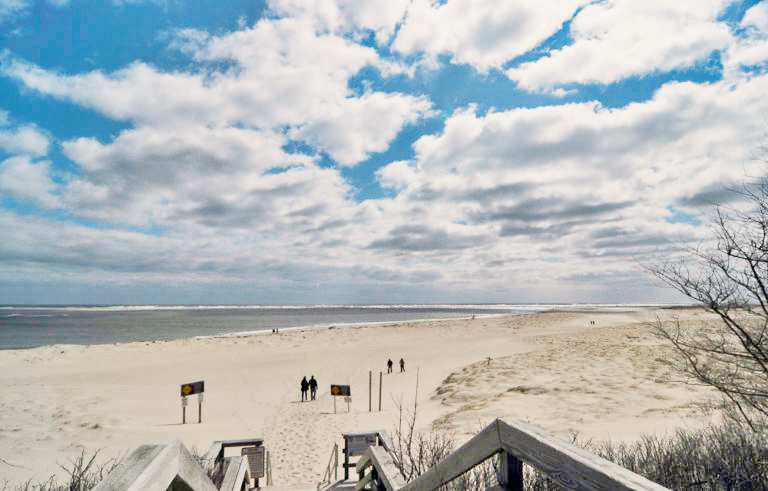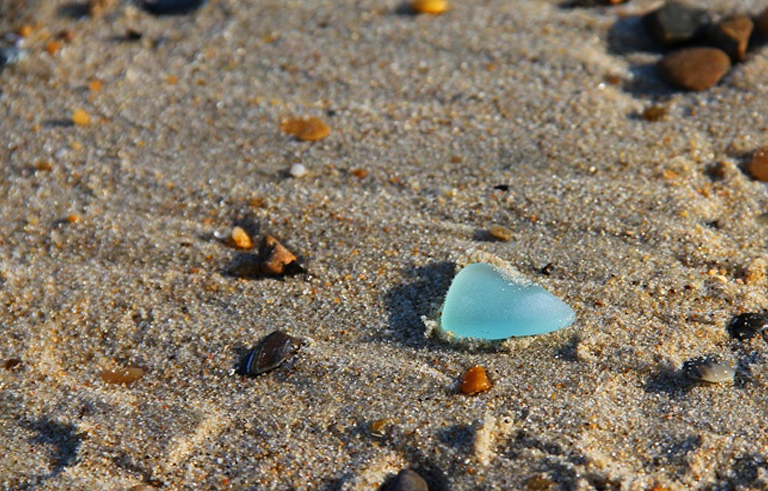We’re coming to the edge
Running on the water
Coming through the fog
Your sons and daughters
Let the river run
Let all the dreamers
Wake the nation
Come, the New Jerusalem
As it turns out, my Aunt Meggie only had a short time left on this side of the grass. Although that was not present in her thoughts, or mine, when I visited her at her home in Chatham some two decades ago. In Meggie there was no shred of fear, disappointment or regret. There was a peace and kindness in her eyes that was, and remains, an inspiration to me to this day.
She used to tell me that Chatham was her “third” home. First: Brooklyn, King’s County; second: Woodbury, CT; and then Chatham, Cape Cod. Originally Chatham was just a vacation/weekend retreat for Meggie and my Uncle Saul. While as a little boy I loved when we took family day trips (and occasional sleepovers) up to Woodbury. But once I got to College age and gained independence (and after Meggie had sold the home in Woodbury), I tried to get down to the Cape for a visit at least once or twice a year. A visit to Chatham always “re-charged my batteries.” First, Meggie made boffo chocolate chip cookies. Second (and more important), she was a repository of wonderful family stories — stories, richly detailed, insightful and packed with warmth, wisdom and wit. And in particular for me, there was added poignancy to the tales after the passing of Saul, and after the passing of my parents.

On the day I am thinking of, it was a clear and not overly cold February afternoon. The type of day if you went to the Cape Cod shore the sky would be a brilliant blue canopy spotted with linen white clouds, and the waters of the Atlantic would be awash in the sun. Meggie and I made our way to Chatham’s Lighthouse Beach. We both love a beach in winter. There is a soothing quality in seeing an open unpopulated stretch of sand abiding next to lightly turning waves, and quiet except for the occasional cackle from a circling gull. We spotted a couple of like-minded souls working their way along water’s edge. Someone else brought along their Golden Retriever, who happily chased after a frisbee.
As much as I love looking out to an expanse of sea, my Mother had always advised me to keep looking down as I walked along a beach. “You never know what you’ll find, Jimmy.” And as a young boy, I dutifully followed her recommendation whenever I patrolled the beaches, first of Milford and then of Norwalk. A rocky jetty was home to snails, hermit crabs and mussels that clung to rocks. At low tide there would be an occasional horseshoe crab carcass rotting in the sun. Shells, and shell fragments galore scattered about in the soft Long Island Sound sand. And then a rarity: a piece of sea glass brushed to a dull appearance by decades of being beaten by sea and sand. The bright shiny surfaces transformed into soft dusty pastels. Above all else, I loved finding shards of sea glass… a pastime I passed along to my two daughters.
And so it was on that bright February afternoon, as Meggie and I walked along the beach, that she stopped and said, “Why look! A beautiful piece of sea glass!” She bent down, picked it up, brought it up to the sky and into the sun to better inspect it. “Blue! This is a keeper.” And she put the small piece of glass into her coat pocket. This was not to be unexpected. Meggie (and presumably Uncle Saul, too) was a committed sea glass collector. Evidence of this interest was clearly seen in their den. There on the étagère wedged in the corner of that room, on a lower shelf, was a good sized glass jar filled with pieces of sea glass. Blues, greens, a precious few reds or browns… and some whites. White sea glass most being the most commonly found, often didn’t make the cut to be saved for posterity.
We continued our walk. When I stopped to pick up the frisbee at my feet and return it to the grateful Retriever, Meggie paused, took out that piece of sea glass from her pocket, “Blue. Uncle Saul thought that blue sea glass was a gift sent by the angels.”
She continued. “Jimmy, you know how Uncle Saul used to love kidding around. He could tease me left and right. It could be of the most inconsequential things… the Grand Union was running out of toilet paper! And I would dutifully drive down to Southbury to lay in a supply of TP. But when he spoke of what sea glass represented, there was no foolin’ around in his voice.”
Meggie looked at that blue glass again. Closed her eyes, and brought that small piece of blue to her breast.
“My Saul was a dreamer. A marvelous dreamer. It could be playing the clarinet, or bewitching a young girl in Paris. A young girl in Paris, like me. There was something in those eyes that spoke of pages not yet written, adventures not yet charted.”
The small piece of glass was returned to the safety of her pocket.
“Our first discovery of sea glass happened accidentally, and I think that is the way it usually is with stuff you find on the beach. You just stumble upon something. Honestly, I can’t remember the beach. I even doubt my memory to recalling the State! What I recall are Saul’s words. Words that are as clear to me as this February day.”
“When he picked up that small piece of brushed blue glass he looked at me, and said, ‘Miriam (yes, my given name, which meant that what followed was serious) this small piece of blue was sent to us! It’s a gift, it’s not happenstance. It comes to us from my Zayde Avraham. And my Bubbe Rachel has poked him in the ribs to send this to me. Rachel told my grandfather, let him know that our Sabbath table is set; but there is no need for us to rush.’”
“So with the found piece of glass in his hand, he then turned to the sky and said a prayer. As best he could, he adopted a solemn posture of reverence and respect. Although he didn’t admit it to me, I am sure that the Hebrew he intoned could have been pure drivel. When I asked him what the prayer said. He smiled, and he admitted that he didn’t know.”
“Then he looked at me with the warmest of expressions and said, ‘But words are just words regardless of language. For the meaning: it’s wrapped in our heart, our emotion and the melody for living.’”
Meggie shook her head. Laughed. Shoulders drooped some. Gestures that spoke volumes to a sweet richness of life, and a vacancy that could never be filled. Then a broad smile bloomed on her face.
Glass secure in her pocket, she brought the coat collar up to shield her face to the light breeze coming in off the sea. She looked at me with a warmth that I only wished I could have bottled for safekeeping. A warmth that was connected intimately to a dreamer in the sky.

____________
Verse at the top of this story is from the song “Run River Run” by Carly Simon.
